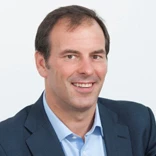
Over the past two years, the World Bank’s flagship climate change report series Turn Down the Heat and its complementary free Massive Open Online Course (MOOC) have helped bring important climate related issues to policy makers and concerned citizens, reaching nearly 39,000 people in more than 180 countries worldwide.
Now, with the adoption of the Paris Agreement at COP 21, we are ready to launch a new and exciting MOOC: “From Climate Science to Action – Turn Down the Heat Series”. The MOOC is delivered in association with the World Bank’s Open Learning Campus – the one stop shop for development learning. This interactive course focuses on region-specific impacts and opportunities for climate action in the context of the Paris Agreement. With an overview of the submitted National Determined Contributions (NDCs), it lays out implementation challenges and opportunities of the Paris Agreement.
Each part of the world is facing specific vulnerabilities to climate change and consequently adaptation and mitigation measures need to be tailored to the reality of a region or sub-region. With the Paris Agreement, the global community has signaled its intent to act. Indeed, without appropriate climate action, decades of development progress are threatened.
This action-oriented MOOC will give you the opportunity to learn about regional climate change impacts and sector-specific strategies for increasing resilience and mitigating climate change. For example, you will learn:
- how the introduction of appliance standards, labeling programs or codes for new construction can improve energy efficiency;
- how to power resilience through the development of renewable energy, considering the natural resources available for each region;
- how climate smart agriculture increases resilience to flooding, changes in temperatures, or rainfall patterns, while supporting food security and livelihoods;
- how we can help the poorest and most vulnerable that live in slums across megacities by improving urban planning and resilience to climate change.
The MOOC Experience
This MOOC showcases video conversations with renowned climate scientists, policymakers, and practitioners. Their perspectives provide a synthesis of the most recent scientific evidence on climate change, strategies for low emission and climate resilient development, and an analysis of the Paris Agreement and other outcomes of COP 21. The course also presents a large number of additional resources, including readings and infographics that dive deeper into each week’s theme.
Besides the classes are its discussion forums – they are one of the most exciting about this course - which serve to engage participants from around the globe in knowledge sharing and collaboration. In addition to connecting to other participants, you will also get the opportunity to interact with expert sources via Google Hangout Q&As. To finish, the course culminates in a final project.
Whether you are a policy maker, planner, sector specialist, research scholar, NGOs staff, civil society representative, or a concerned world citizen, the “From Climate Science to Action – Turn Down the Heat Series” MOOC is a unique opportunity to learn more about climate change interactively, connecting with people from around the world.
Join us in spreading comprehensive knowledge on climate change. The learning sessions start on May 9 and enrollment is open now. The better we all understand the risks and challenges, the better positioned we will be to act together and tackle climate change.


Join the Conversation